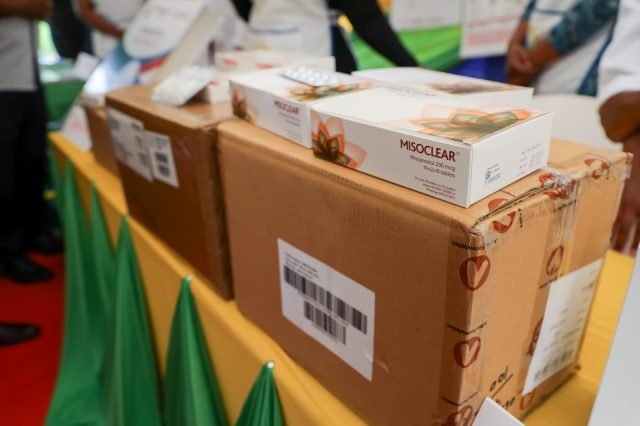The Ministry of Health has included a group of new medications for preventing the death of women during childbirth in the country’s essential medicines list, the conservatory from which all hospitals in Kenya are legally required to purchase medicines.
The signed and updated Kenya Essential Medicines List now has Heat Stable Carbetocin, a medicine used for preventing excessive bleeding during and after birth; the list allows the use of the medicine at all health facilities.
The medicine does not require refrigeration like Oxytocin, Kenya’s first choice for preventing and managing postpartum haemorrhage.
Jackline Mainye, the acting Director of commercial services of Kenya Medical Supplies Agency (KEMSA) said: “In a few weeks, counties can now order the medicine from KEMSA at a fair price of Ksh 92 shillings per dose, a drop in price from Ksh. 1,444 per dose”
KEMSA is in the process of procuring the medicine, and the first batch of the medicine is expected in the country in March 2024.
Heat Stable Carbetocin was available in the country but only in the private sector, where the prices were prohibitive for most public health facilities.
The list has also included tranexamic acid, a medicine invented in the 1950s but was shown to reduce maternal bleeding by a third if given within three hours, according to a study that investigated the medication’s efficiency in over 20,000 women in 21 countries.
Speaking at the Kenya Obstetrical Gynaecological Society (KOGS), Makueni County Governor Mutula Kilonzo said that he has already “allocated resources to mitigate excessive bleeding after birth through introducing innovations that are backed up by research in Makueni County.”

The government used the county as a pilot for how the medication works.
Through support from a UNITAID-supported project, Accelerating Measurable Progress and Leveraging Investments for Postpartum Haemorrhage Impact—AMPLIPPHI, pronounced Amplify— tested the integration of medicine in a health system in Makueni County.
According to the World Health Organization (WHO), a woman dies during pregnancy or childbirth every two minutes, a number that resulted in 287,000 maternal deaths worldwide in 2020. 70,000 of these are from post-partum haemorrhage.
The death of the mother increases the risk that their babies also die within one month.
Dr Daisy Ruto, an obstetric gynaecologist from the Johns Hopkins Affiliate known for its maternal and child health, Jhpiego, cited severe bleeding as one of the killers.
“Bleeding excessively after birth can kill a healthy woman within hours if she is unattended and providing quality access to uterotonics such as Oxytocin, Heat Stable Carbetocin and the others, immediately after childbirth effectively reduces the risk of bleeding,” Dr Ruto.







